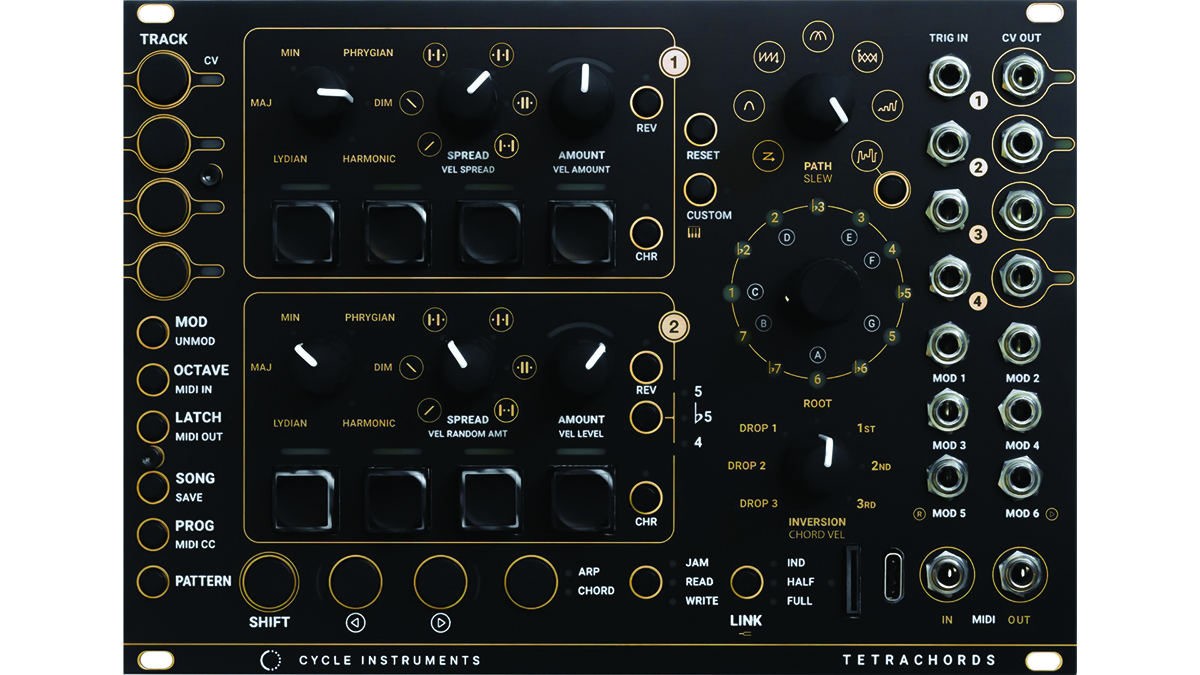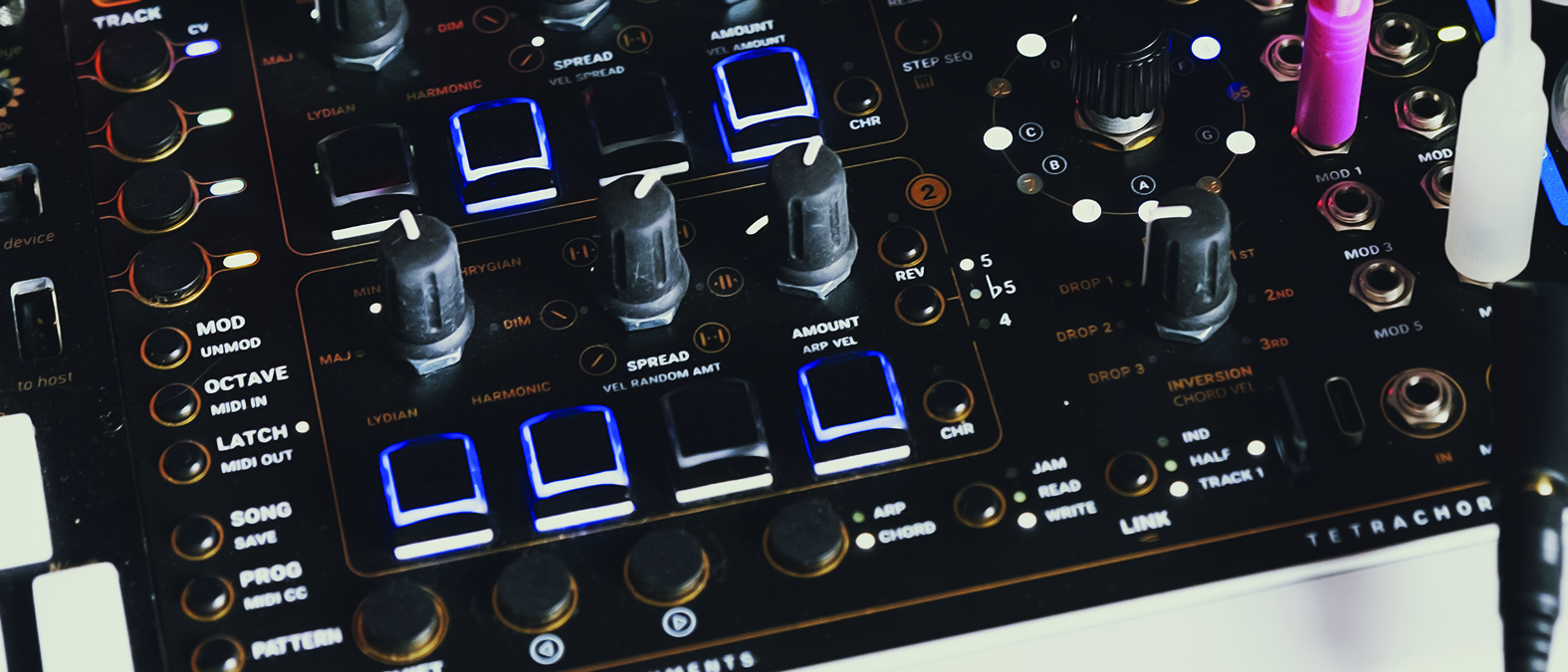MusicRadar Verdict
Tetrachords could well be the last word in sequencing. It’s a joy to use, offers a vast array of features and works on just about any genre.
Pros
- +
Intuitive workflow.
- +
Excellent modulation matrix.
- +
Musically versatile.
- +
Can be hooked up to outboard gear as well as Eurorack.
Cons
- -
Lack of gate outputs.
MusicRadar's got your back
Cycle Instruments Tetrachords: What is it?
Sequencers are ten a penny in Eurorack form these days, coming in all manner of flavours, shapes and sizes. Why do we need another? Cycle Instruments answers that question in an instant with its Tetrachords module.
The build quality is second to none, with just the right level of feedback and resistance from all the buttons and knobs and it instils confidence that it will go the long haul, either in the studio or on the road. It’s quite the looker too, with its lovely black and gold livery, clear labelling and set of usefully colour-coded LEDs.

Cycle Instruments Tetrachords: Performance and verdict
The workflow can look a touch intimidating at first but, while there are a few button combos, there’s no menu diving. Any combos are clearly labelled and a shift button is mostly all that’s needed to access alternate uses for any given control. It doesn’t take long to get to grips with and once everything falls into place using Tetrachords is an utter joy.
There are four tracks, with gate or MIDI input, outputting to CV or MIDI via TRS or USB ports, making this simple to hook up to any gear, not just your Eurorack rig. Six CV-ins give scope for modulation, the implementation of which is excellent and not something you see in modular. Plug in a mod source, press the mod button, choose a slot via the LED buttons, then touch the target control and it’s done. They’ve even defaulted mod six to pattern progression to make it easy to play a series of patterns.
The main, large LED buttons are multifunction and used for selecting everything from note choice, through octave range to pattern but the buttons down the left-hand side make this simple and it never breaks creative flow.
But what can it actually do? Tetrachords is billed as a melodic and harmonic note sequencer but that really undersells it. This module is a happy accident monster, as well as excelling at more planned performances. Triggers play a note, chosen via the LED buttons, following a selectable path. You can adjust the key, musical mode, scale and lots more, to define exactly what you want, including velocity, whether you trigger a chord or an arp and the spread of the notes.
Transposing can be done by the root knob (or CV, as can everything else). Not only can all four tracks be transposed together, keeping things in line, but can be unlinked for more musical opportunities.
Want all the hottest music and gear news, reviews, deals, features and more, direct to your inbox? Sign up here.
Songs, programmes and patterns can be saved, great news for live gigging or returning to a session later. Which Tetrachords excels at. The MIDI options are extensive, so hooking this up to a DAW, or other outboard gear is a doddle, opening up even more possibilities for creative use.
There’s more than can be covered in the space available here but check out Cycle Instruments' video manual on YouTube to get a great breakdown of the workflow. Trust me, it can do everything from random melodies to step sequenced parts and even has a live mode.
MusicRadar verdict: Tetrachords could well be the last word in sequencing. It’s a joy to use, offers a vast array of features and works on just about any genre.
Cycle Instruments Tetrachords: Hands-on demos
cycleinstruments
Cycle Instruments Tetrachords: Specifications
- KEY FEATURES: Four tracks of CV or midi output, Comprehensive mod matrix, Saveable songs and patterns, Step sequencing, Integration with existing gear DIMENSIONS: 36hp x 30mm deep, I2c connection.
- CONTACT: Cycle Instruments


